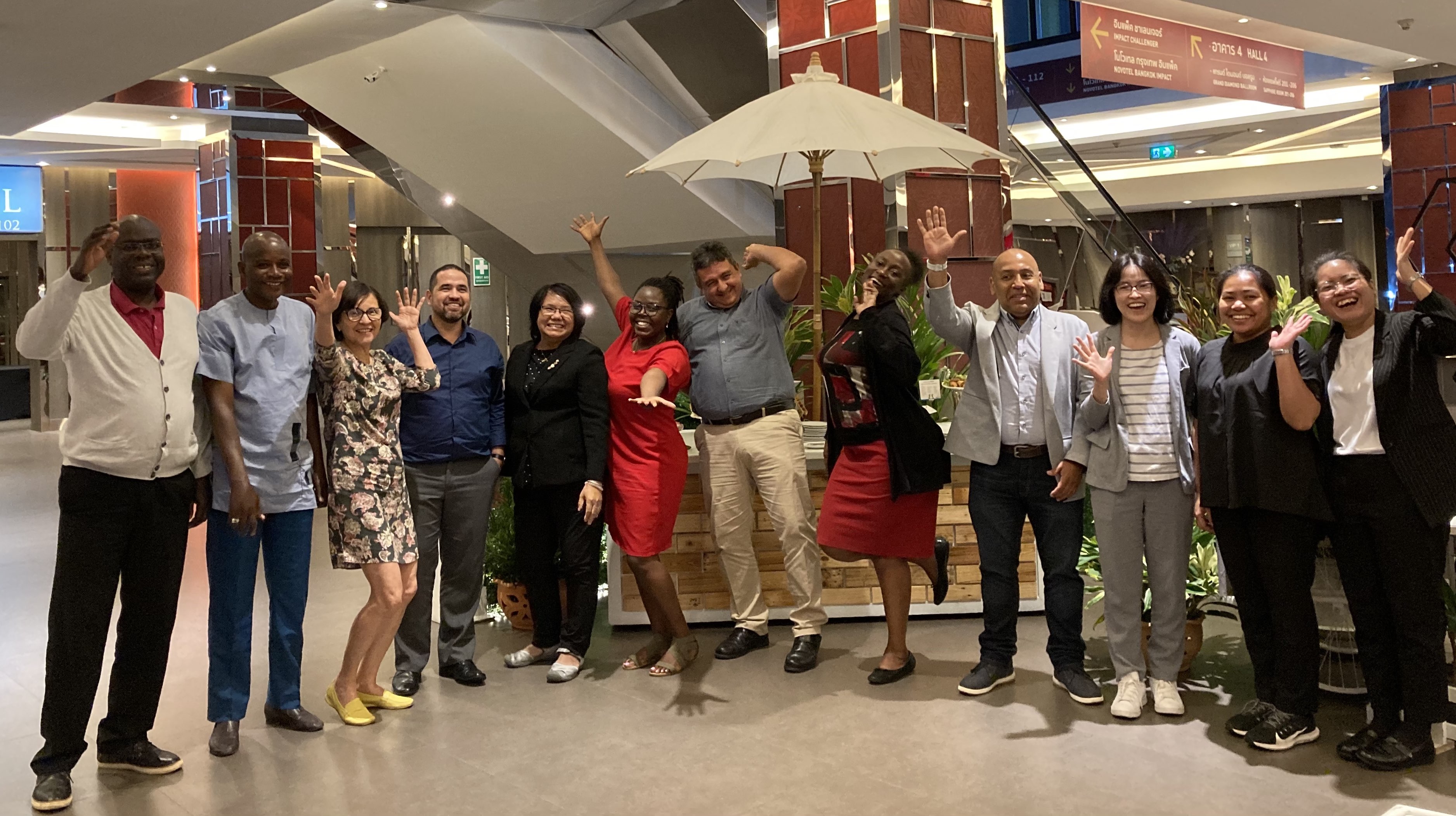CANP Workshop 2023 Bangkok
by Anjum Halai, ICMI Vice-President in charge of CANP
The Capacity and Network Project (CANP) is a flagship program of the International Commission on Mathematical Instruction (ICMI). To date ICMI has supported five CANPs. One of the two ICMI Vice Presidents Anjum Halai provides overall coordination of the CANPs and each CANP is supported by an ICMI EC member acting as a liaison person as noted in the table below. On February 15th -16, 2023, a workshop of all five CANPS was conducted in Bangkok. This was a significant event because all CANP teams and the ICMI Executive Committee (EC) were meeting in-person for the first time since the COVID pandemic. Moreover, several new members had joined CANP, and it was important for them to meet with the larger group and with the ICMI EC. Representatives of the International Mathematics Union also attended the workshop.
The workshop aimed to further the dual goals of CANP, namely: a) Create sustained and effective regional networks in low-income and middle-income countries of teachers, mathematics educators and mathematicians, also linking these networks to international support networks, to enhance mathematics education at all levels, b) Develop the educational capacity of those responsible for mathematics teachers.
| No. | Region | CANP Representatives | EC Liaison |
|---|---|---|---|
| CANP 1 | Francophone Sub-Saharan African Region |
i) Adolphe Cossi Adihou, |
Jean-Luc Dorier |
| CANP 2 | Central America and the Caribbean |
i) Yuri Morales Lopez, |
Marta Civil |
| CANP 3 | Southeast Asia | i) VU NHU Thu Huong, ii) Nisakorn Boonsena, iii) Chanika Senawongsa, iv) PimpakaIntaros |
Susanne Prediger |
| CANP 4 | East Africa | i) Marjorie Sarah Kabuye Batiibwe , ii) Aline Dorimana |
Mercy Kazima |
| CANP 5 | Andean Region and Paraguay |
i) Jorge Daniel Mello Román, |
Patricio Felmer |
The workshop was highly interactive. CANP representatives made presentations and engaged in small and large group discussions. The language of the workshop was English. To enable participation of all, EC member Nuria Planas Raig offered facilitation in Spanish and Jean-Luc Dorier similarly facilitated communication in French.
Key conclusions drawn included: a) It was easier to establish a regional association when national associations had already been established, b) There was considerable ongoing activity on the ground to promote mathematics education research, c) A significant challenge was limited availability of qualified teachers. Additionally in-service teacher education was not institutionalized in most CANP regions, as the focus remained on pre-service teacher education, d) A goal of CANP activity was to improve the quality of mathematics teaching in classrooms and members agreed to specify what was entailed in quality and how could it be assessed.
It was noted that ICMI had several highly relevant resources and support mechanisms available for the CANPs. These include the following: a) ICMI newsletter, which could be subscribed here b) AMOR project, c) ICMI data base that collects highly valuable information about national syllabus, standards and education structures. d) International networks through international conferences:
- Visit ICME in Sydney
- ICMI study conference on geometry (see details in this issue)
- ICMI online symposium on socio-ecological perspectives. (see details in this issue)
Participants deemed the workshop as a highly successful event that provided an opportunity to:
- Bring together early entrants to CANP and the more experienced CANP leaders to meet collectively with ICMI EC, members of the IMU, to share progress update, success, and challenges,
- Engage collectively in reflection and analysis on key issues of salience to mathematics education,
- Identify barriers and challenges to sustainability of CANPs,
- Identify support within and externally to address the challenges and deal with barriers.
In going forward CANP representatives would develop an Action Plan in consultation with the mathematics education community in their regions and their respective EC Liaison. The Action Plan would focus on strategies to achieve the goals of CANP in the contextual realities of their respective regions. Representatives would submit the Action Plans to their respective EC Liaison by or before their agreed upon deadline.
The workshop concluded with ICMI President Fredrick Leung thanking all CANP participants, EC members and especially the IMU representatives. He noted that the presence of IMU was a testament of the great support by community of mathematicians to the community of mathematics educators, who were both working towards the common goal of promoting mathematics.

Compiled by Anjum Halai with input from ICMI EC members.